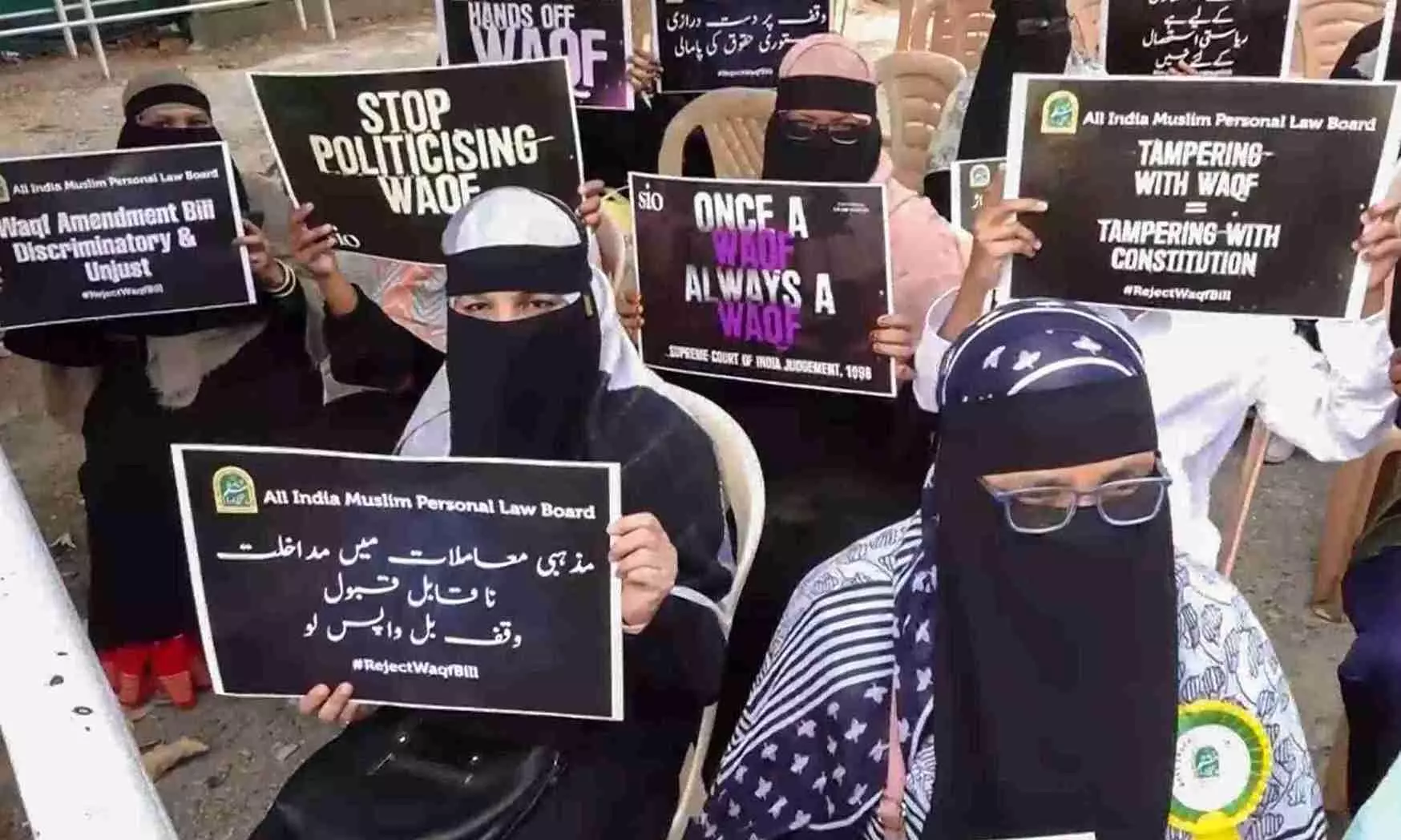
Muslim bodies welcome SC’s Waqf Act verdict but call it ‘incomplete’
Muslim bodies welcome stay on key provisions but express disappointment that the entire law, including the clause on ‘Waqf by user’, was not stayed

Muslim bodies have reacted cautiously to the Supreme Court’s order on the new Waqf law as they welcomed its decision putting on hold several key provisions, but expressed disappointment over the refusal to stay the entire law.
Expressing disappointment over the top court’s order, the All India Muslim Personal Law Board (AIMPLB) said it was “incomplete and unsatisfactory” as the refusal to stay the entire law leaves “numerous harmful provisions” in operation, including the prospective de-recognition of “Waqf by user”.
The Muslim body also asserted that its “Save Waqf Campaign” will continue with full strength and nationwide protests will culminate in a massive rally at Ramlila Maidan in Delhi on November 16.
AIMPLB spokesperson SQR Ilyas said the Board maintains that the entire amendment is a deliberate move to weaken and seize waqf properties and, therefore, demands the complete repeal of the Waqf (Amendment) Act, 2025.
Also read: Waqf Act: SC pauses contentious powers, but Centre not out of play
Disappointment over entire law not being stayed
Besides AIMPLB, Jamiat Ulema-e-Hind, Jamaat-e-Islami Hind, and All India Shia Personal Law Board also expressed disappointment over not staying the entire law.
These organizations expressed disappointment over not banning the inclusion of non-Muslim members in the Central Waqf Council and State Waqf Boards, but described limiting their number as some relief.
Jamiat Ulema-e-Hind president Maulana Arshad Madani said the Muslim organisation welcomes the decision granting interim relief on three key controversial provisions of the Waqf law but it will continue its legal and democratic struggle until this “oppressive law is repealed”.
“This new Waqf law is a direct attack on the Constitution of the country, which not only grants equal rights to citizens and minorities but also provides them with complete religious freedom. This law is a dangerous, anti-Constitutional conspiracy to snatch away the religious freedom of Muslims,” he claimed.
Therefore, Jamiat challenged the Waqf law in the Supreme Court, he added.
Also read: SC ruling on Waqf Act : 'This is a win; draconian parts stayed' | Interview
Partial relief
“We are confident that the Supreme Court will abolish this oppressive law and grant us full constitutional justice,” Madani said. However, he expressed concern over refusal to stay the prospective de-recognition of “Waqf by user”.
Maulana Mahmood Madani, who heads the other faction of Jamiat Ulema-e-Hind, said in a statement that the apex court’s decision is somewhat satisfactory and also provides partial relief in some other cases.
The former Rajya Sabha member said that the biggest and basic issue is that of “Waqf by user” and asserted that it was integral to the Islamic law.
Also read: Supreme Court stays key provisions in Waqf Amendment Act
Key concerns remain unaddressed
Jamaat-e-Islami Hind president Syed Sadatullah Husaini said the order has exposed major constitutional flaws in the Act and curbed some of the government’s most arbitrary provisions.
“The community appreciates the interim protection granted, particularly against executive interference in Waqf properties and the suspension of impractical conditions such as the five-year Islam requirement. At the same time, key concerns remain unaddressed, especially the abolition of Waqf by user,” he said.
All India Shia Personal Law Board general secretary Yasoob Abbas said, “We respect the Supreme Court’s decision. We have full faith in our courts and we are hopeful of getting justice.”
The Supreme Court on Monday put on hold several key provisions of the Waqf (Amendment) Act, 2025 including the clause that only those practising Islam for the last five years can dedicate a property as Waqf, but refused to stay the entire law outlining the presumption of constitutionality in its favour.
(With agency inputs)

